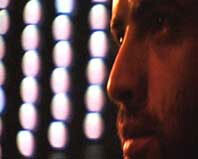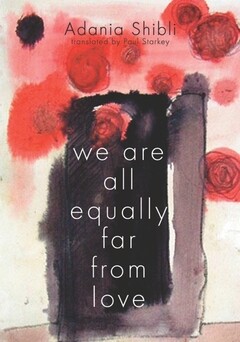The Electronic Intifada 21 April 2003

Abu Wael makes this humiliation and repression more memorable by not relying on predictable footage of Palestinians living in poverty and Israeli soldiers peering out of tanks. Instead, he uses the main character’s sexuality as a base for helping the audience understand his plight.
Indeed, the themes of dominance, humiliation, and vulnerability are established in the opening line, “The chicken and the goat were my first females.” The young man also witnesses the establishment of power and control as he watches sheep mating, a scene that Abu Wael depicts quite viscerally, and takes place “two days before the Jews conquered us.”

Life at home is no sanctuary either. “My father is a monster,” he says, and he observes his parents having sexual intercourse, describing it as “flesh colliding with flesh.”
The audience might think that things take a turn for the better when the narrator introduces Asya, “the most beautiful girl in the village.” Viewers are put in the young man’s shoes as they voyeuristically gaze at Asya as she bathes in what she thinks is privacy. However, gunshots disrupt the scene and once again sex becomes synonymous with violence.
And so the young man returns to the dark — the dark car of the Israeli man, the dark of home where an Israeli soldier rapes his mother as he sits silently and watches, and finally to the dark of the street where the viewer leaves him to his own devices, not feeling especially confident that he will find his way out of a seemingly black hole.
Maureen Clare Murphy is the editor of F News and lives in Chicago.





